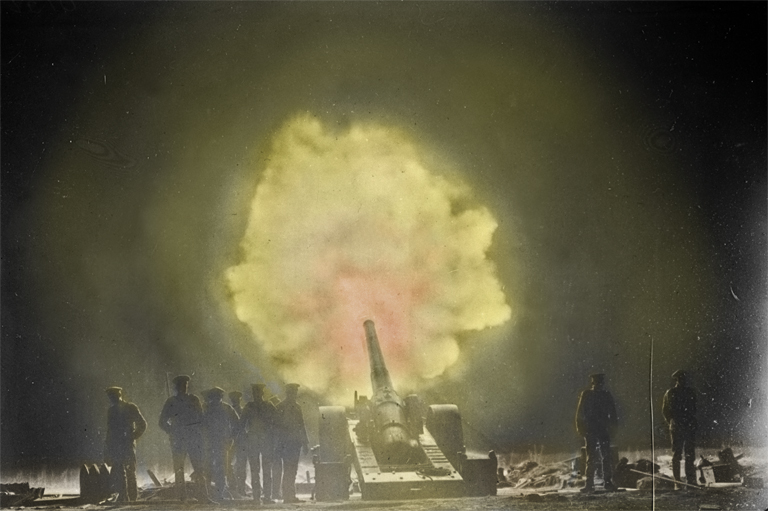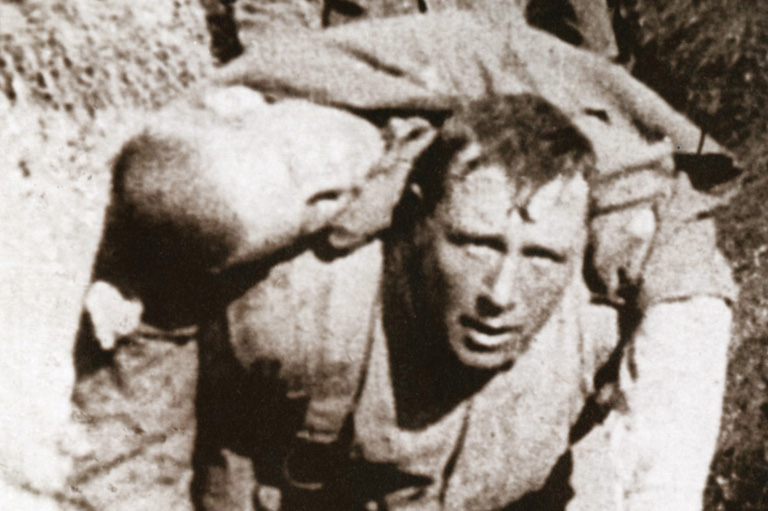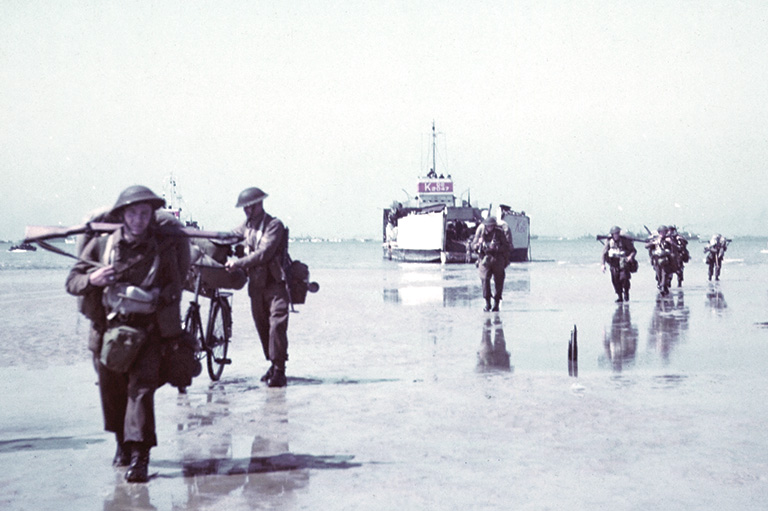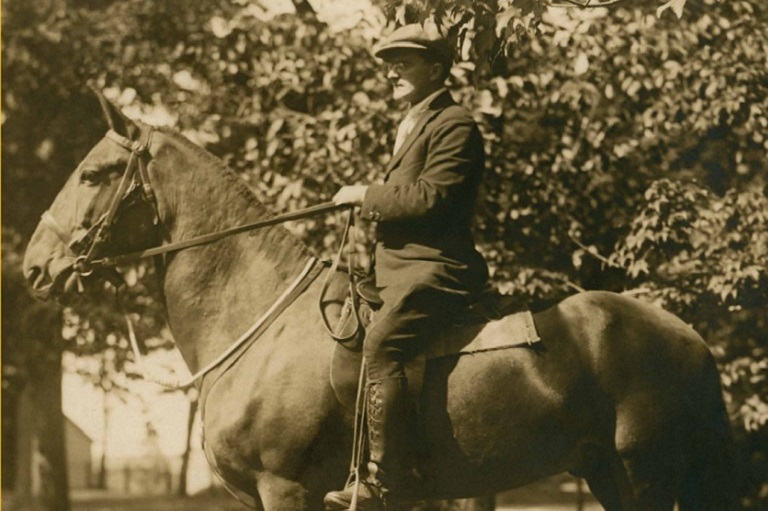The Christmas Truce
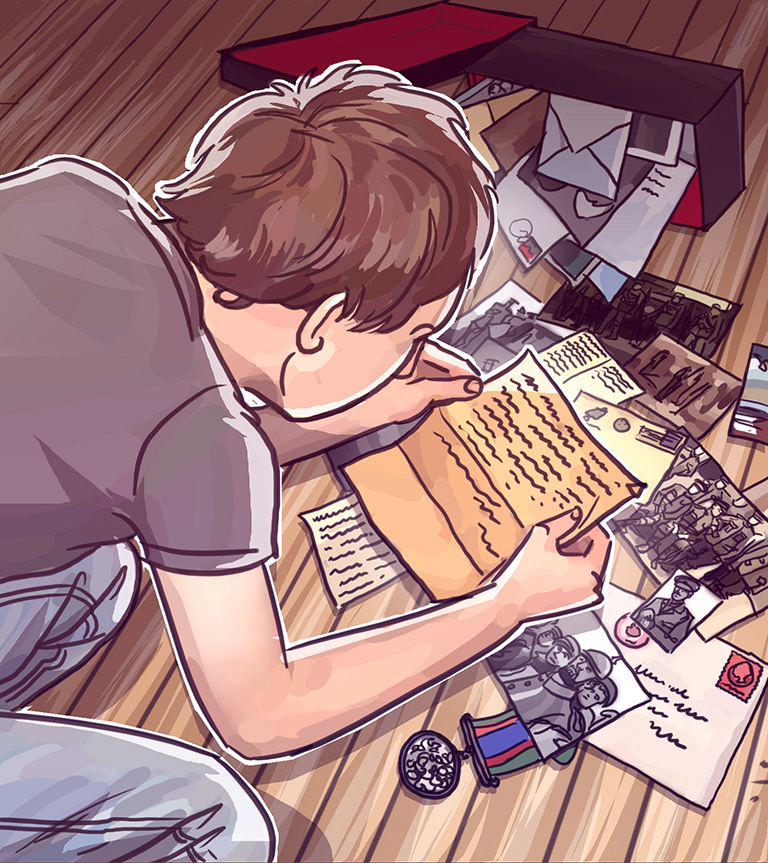
Justin moved with extra care as he crept along the upstairs hallway. One wrong step and the squeak of a floorboard might give him away. Downstairs, his sisters and grandparents were decorating the Christmas tree and singing carols. He doubted they could hear him over his sisters’ annoying voices. But he had to be careful all the same.
There were six days left until Christmas, and Justin was on a mission. He knew his mother had hidden his Christmas gifts somewhere in his grandparents’ house. And he was determined to find them. So far, he’d searched every room except for the one that was strictly off-limits: his grandfather’s study. He was sure he’d get in trouble if anyone caught him in there, but he was willing to risk it. He wanted to find those presents.
Taking a deep breath, Justin pushed open the study door and looked around. Immediately, his eyes fell on a large closet in the corner of the room. Jackpot.
Justin tiptoed to the closet, opened the door, and sighed. There was nothing in there but old books and magazines. Feeling defeated, he began to turn around to head back downstairs when he saw a box on the top shelf of the closet. It wasn’t a big box, but it was certainly large enough to hold a few sweet Christmas gifts.
Standing on his tiptoes, Justin pulled at the box. He suddenly lost his grip. The box slipped off the shelf and fell to the ground, emptying its contents on the way down. Justin held his breath and waited to see if anyone had heard the ruckus. When no one came running, he took a look at the stuff that had spilled to the floor. It was memorabilia from the Great War — newspaper clippings, postcards, letters, and photographs, all yellowed with age and musty smelling.
One by one, he put the articles back in the box, reading the odd clipping and looking at photographs as he went along. Written on the back of one photograph was his great-grandfather’s name: George S. Wilson. Justin flipped the photo over and was surprised to see a young soldier who looked a little like his own father. Soon, everything had been returned to the box except for one letter. On the envelope were rough drawings of Christmas trees. Curious, Justin opened the letter and began to read...
December 26, 1914
My dear wife, I hope you enjoyed your Christmas celebrations as much as I enjoyed mine. You may find this hard to believe, but it has been a happy Christmas here on the battlefields of France.
As I wrote before, the conditions in the trenches have been terrible. Rain has fatten almost daily, and our men have been knee deep in water and mud. But two days ago, on the morning of Christmas Eve, the weather finally changed. We had our first real freeze. Everything turned crisp and white with frost. It was a welcome surprise.
There were more surprises. That evening, as the moon shone brightly, we sat in our trenches and waited for an enemy attack. None came. It was so quiet that it felt like a dream. Feeling brave, a few of us peeked over the top of our trench and looked out across the battlefield. We were shocked by what we saw. Small Christmas trees, aglow in candlelight, were lined up along the German trenches.
Suddenly, the sound of music filled the air. The Germans were singing a Christmas song. Their voices were beautiful!. When the song was over, we all applauded. Then one of our men started to sing a carol, and the rest of us joined in.
When we finished our song, the Germans cheered. Soon we were taking turns singing to each other and shouting holiday greetings across No Man’s Land. Next, we saw two unarmed men leave a German trench and walk toward us. Some of our fellows went to meet them halfway. The men chatted and shook hands. Together, they agreed to a temporary truce over Christmas.
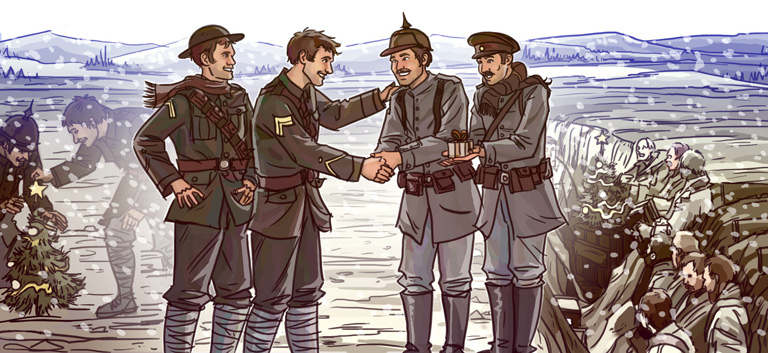
On Christmas morning, we all left our trenches and met the Germans on the frosty land. It was a wonderful sight to see.
Enemies were coming together, taking a holiday from war. We shook hands and exchanged souvenirs. I gave one German soldier some chocolates and plum pudding. He gave me a cigar and two buttons from his uniform. Later on Christmas Day, we helped each other bury our dead.
It is now early in the morning on Boxing Day, and I am still filled with joy from my experience. It hardly seems possible that we were celebrating with the men who are supposed to be our enemies. But really, these men are not so different from us.
Sadly, I expect by the time you get this letter we shall be shooting at each other again.
Your loving husband,
George
Slowly, Justin folded up the letter and returned it to the box. Downstairs, his sisters were still singing carols. But for some reason, he didn’t find the sound as annoying as before. Actually, he kind of liked it.
After putting the box away, he walked out of the study and went to help with the Christmas tree. It wasn’t until later, once he was drifting off to sleep, that he realized he’d forgotten all about finding those presents.
Setting the Scene
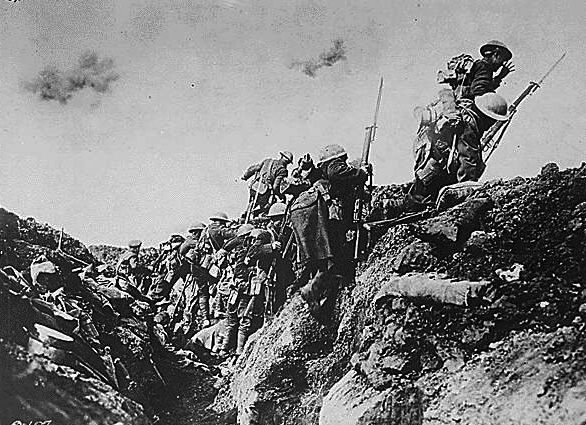
A Long War
When the First World War began in August 1914, most people believed the fighting would be over in a few months. Unfortunately, they were wrong. The war lasted for four long years. By the time it ended, at least 10 million men and women had died in the conflict. Among them were more than 66,000 Canadians.
A Moment’s Peace
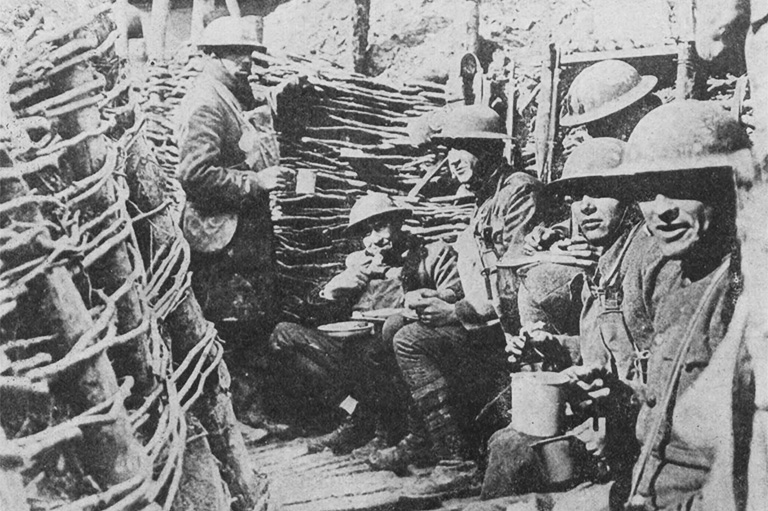
During the First World War, countless troops sent letter and postcards to their loved ones. Usually, these soldiers didn't have much in the way of happy news to share. The fighting conditions were terrible, and the battles were bloody.
But at the close of 1914, thousands of soldiers wrote home to tell their families about an incredible event. Days earlier, enemies had put down their guns and celebrated Christmas together. All along the Western Front, troops from opposing sides shook hands, sang Christmas carols, and shared gifts.
This event became known as the Christmas Truce. It took place before Canadian soldiers reached the Western Front. Nevertheless, it is a reminder to all Canadians, and to the rest of the world, that we have the power to put aside our differences and unite in the spirit of peace and goodwill.
Themes associated with this article
Advertisement

